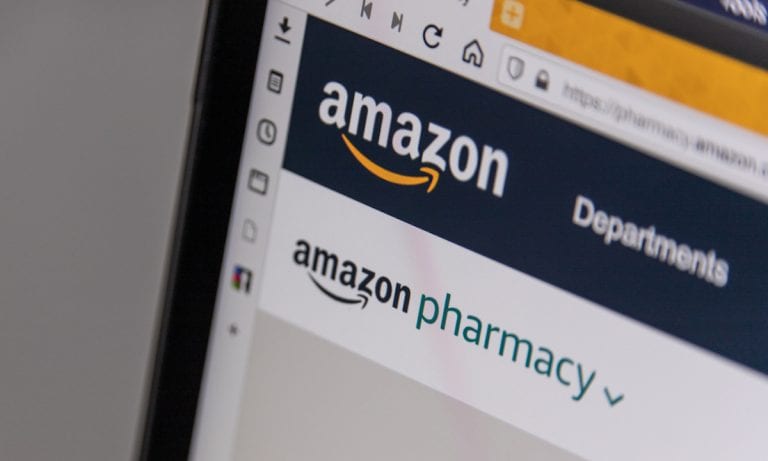Amazon’s Insulin Coupons Fuel Retail Ambitions for Patient-Centric, Accessible Care
BY PYMNTS | AUGUST 16, 2023
|
Amazon Pharmacy
Technological advancements and evolving consumer expectations are fueling a significant transformation in the healthcare space, with several retailers at the forefront of shaping new paradigms that prioritize convenience, affordability and personalized experiences.
Amazon is one of the more notable examples, leveraging its vast logistical network to step up its healthcare presence in recent months following its acquisition of tech-powered primary care provider One Medical for $3.9 billion in July last year.
On Tuesday (Aug. 15), Amazon Pharmacy – a delivery service for prescription medications launched in November 2020 – announced the debut of automatic, manufacturer-sponsored coupons to help patients save on the high costs of insulin and other diabetes-care products, in an attempt to tackle a sore point for consumers and politicians alike.
“Customers can save time and money on the most commonly prescribed products … like insulin vials, pens, continuous glucose monitors and pumps,” the company said in a post. “With automatically-applied, manufacturer-sponsored coupons, many insulin brands are available to eligible customers starting at $35 a month.”
Prior to that, the retail behemoth in 2020 launched Amazon Clinic, a virtual care service that offers treatment for common health ailments, and more recently a service called RxPass to offer patients access to generic medications for $5 a month, delivered to their homes at no cost.
Earlier this month, the retail giant further deepened its healthcare offerings by announcing that Amazon Clinic, which was initially launched in 32 states, is now available across the United States. Customers using the service can access remote messaging and video consultations for 30 common health concerns 24/7 via the Amazon website or Amazon mobile app with licensed clinicians.
“We think health care is high on the list of experiences that need reinvention,” Neil Lindsay, senior vice president of Amazon Health Services, said last July.
“Booking an appointment, waiting weeks or even months to be seen, taking time off work, driving to a clinic, finding a parking spot, waiting in the waiting room then the exam room for what is too often a rushed few minutes with a doctor, then making another trip to a pharmacy — we see lots of opportunity to both improve the quality of the experience and give people back valuable time in their days,” Lindsay added.
Affordable, Patient-Centric Care
The news of Amazon’s insulin price cuts comes as rival Walmart and other retail firms are stepping up their investment in the healthcare field.
Walmart announced earlier this year it will double its health center numbers amid continued expansion into the wellness space, opening 75+ health centers by 2025.
“We know the cost and convenience of healthcare remains a barrier for many Americans, which is why we decided to bring our one-stop model of healthcare to these communities,” Dr. David Carmouche, Walmart’s senior vice president for omnichannel care, said in a March news release.
Walmart’s ventures into the care field include the health centers located inside its supercenters – reaching 90% of the U.S. population, per the company – the sale of over-the-counter hearing aids and its 2021 acquisition of telehealth provider MeMD.
Last summer, the Amazon rival also closed a 10-year deal with UnitedHealth for a program to launch 15 Walmart Health locations in Georgia and Florida this year to help Walmart Health clinicians with analytics and decision support tools.
Recent months have also seen a number of other retailers make their own moves to deepen their healthcare roots, including CVS, which finalized a $10 billion deal to acquire primary care provider Oak Street Health in February.
In September, CVS, which has evolved from a pharmacy-only focus to an overall healthcare provider, made another notable win, beating Amazon and UnitedHealth to close an $8 billion deal to acquire value-based healthcare solutions platform Signify Health.
Overall, these retail-based healthcare solutions have contributed to expanding healthcare offerings, introducing innovative models that emphasize integrated care, affordability and ease of access. These models reflect a future where patients have greater control over their health, access to more personalized care, and have the potential to increase opportunities for early intervention.
Affordable and tech-driven healthcare delivery models have also come at a time of rising cost of healthcare and need for virtual access to healthcare, especially at the onset of the pandemic.
According to The ConnectedEconomy™: Omnichannel Healthcare Takes Center Stage, a collaboration between PYMNTS and CareCredit, nearly half (46%) of consumers receive care through a mix of physical and digital channels, with telemedicine’s popularity steadily rising among patients.






























